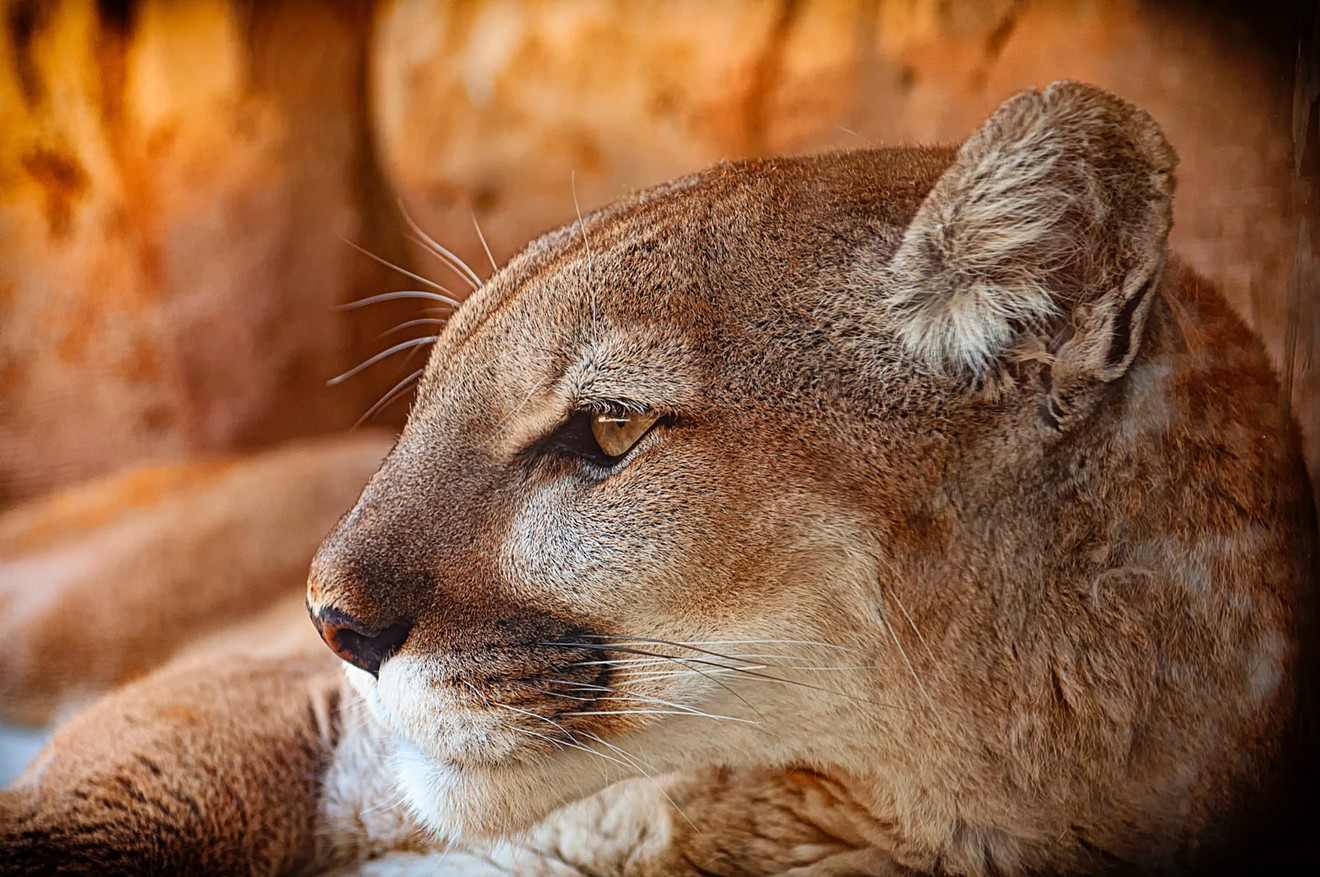However, the group said in a press release this week that the Texas Parks and Wildlife Commission would be briefed on mountain lion conservation at their Aug. 25 meeting. The commission will also hear from people on the issue at its annual public meeting scheduled the day before.
Texans for Mountain Lions is a group of landowners, biologists and several organizations that want the state to improve the conservation status and management of mountain lions.
The same month the group submitted the petition, the state department told the group it would likely be denied per their staff’s recommendation. It was officially denied Tuesday. In a letter to the conservation group, the Texas Parks and Wildlife Department said its staff recommended briefing the commission at the meeting later this month and forming an advisory group to look into the issue.
The department didn't respond to the Observer's request for comment. But in its letter to the group, the department explained that since no commissioner had requested the petition be placed on the agenda, it was denied.
"As noted in the staff recommendation for denial, staff is assembling a mountain lion working group composed of concerned landowners and land managers, academics and subject matter specialists, representatives from concerned constituents, and Texas Parks and Wildlife Department personnel to help inform the commission on research, conservation and management related need and alternatives for this species," the department said in the letter.
While they’re upset about the denial, members of Texans for Mountain Lions say they’re also glad the state is allocating some resources toward helping out the large native cat.
“The formation of a stakeholder advisory group was one of the items that we requested in our petition, and we are hopeful the group will include a variety of opinions,” Ben Masters, a wildlife filmmaker and member of the group, said in a press release. “We also plan on attending the Texas Parks and Wildlife Commission’s annual public hearing on August 24 to make sure our voices are heard, and we invite others who are interested in this issue to join us.”
Mountain lions are the state’s largest wildcats, and as a non-game species they can be trapped and hunted year-round in Texas. There aren’t any harvest limits, set hunting seasons or requirements to report harvest. That’s why mortality rates of Texas mountain lions are among the highest in the country. That are 16 states that have breeding wildlife populations. Texas is the only one that doesn’t regulate them.“I 100% believe that this is the right step for the department to take to grapple with this issue." – Romey Swanson, Audubon Texas
tweet this
Studies have shown there’s cause for concern, according to Texans for Mountain Lions. These cats used to be found across the state. Now, they’re more likely to be found in harsh canyons and thick brush in South and West Texas. One study monitored 16 mountain lions on protected land at Big Bend Ranch State Park. One of them was shot and the rest died in traps after wandering on to private land. Traps in the Davis Mountains contributed to a nearly 50% annual mortality rate of the lions, another study found.
Seventy percent of respondents to a recent Texas A&M survey said they agreed steps should be taken to conserve mountain lions in the state.
One member of the group, Romey Swanson, the director of conservation strategy for Audubon Texas, told the Observer much of the inaction has to do with politics. “This is not a new issue by any means. The state and Texas Parks and Wildlife has had a storied history concerning the management of mountain lions,” he said.
In the early ’90s, there was some interest by the state to put resources into conserving Texas mountain lions. Promises were made at the time, but politics — primarily having to do with hunting and private landownership rights — have made this a drawn-out effort. “A lot of times, sort of controversial issues may not be picked up effectively due to the politics associated with it,” Swanson said. “I think that’s why for, now a little over 30 years, we haven’t seen any meaningful progress being made on assuring that lions within Texas are being managed sustainably.”
Despite the denial of the group’s petition, Swanson thinks they might be headed in the right direction. “I 100% believe that this is the right step for the department to take to grapple with this issue,” he said. “I know that the words ‘denial of the petition’ may seem discouraging, and to some folks it might be.”
The intention behind the petition, Swanson said, was to prop up the issue so it could get some attention from the state, and that appears to be what’s happening now.












